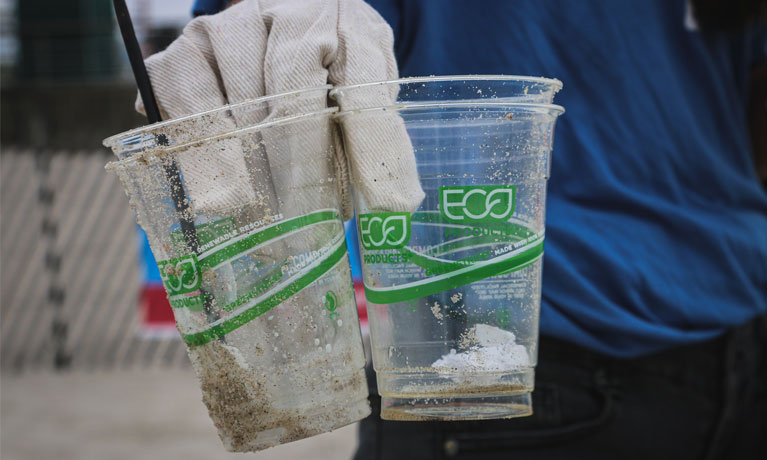Value to Coventry University
£167,133.00
Total Value
£348,851.00
Collaborators
Simon Fraser University – Canada – Lead
University of Lodz – Poland
SGH Warsaw School of Economics – Poland
Federal University of Sao Carlos - Brazil
Duration of the Project
1st Jan 2020 to 30th June 2022
Project Overview
Increasing concerns over the environmental impact of plastic single-use packaging have reached a critical juncture. With growing awareness of the negative environmental impacts of petroleum-based packaging, the trend towards adopting bio-based products has increased. However, while bio-based packaging may be seen as a “disruptive innovation”, there is a lack of studies exploring the social and environmental implications of this product. For example, bioplastic packaging is hard to distinguish from its plastic counterpart, resulting in contamination and waste management issues at a municipal level. As such, the adoption of this product becomes a “wicked problem” as it is seemingly impossible to solve due to the numerous interdependent factors that simultaneously impact solutions.
To address this issue, four research partners consisting of UK, Canada, Brazil and Poland, will implement four collaborative social innovation labs. A social innovation methodology is critical to better understand how bio-based packaging innovation will impact the environment and diverse stakeholders across the supply chain, especially as it relates to food security, waste infrastructure, formal and informal waste collectors, consumers, vendors, food producers, and policymakers.
Project Objectives
The overarching aim of SIMBIO is to develop social interventions that will address the environmental and social challenges of bioplastic packaging throughout its entire supply chain from production to end-of-life management.
To achieve the aim, the following objectives have been designed to:
- Identify the current understanding of bioplastic packaging for food from the perspectives of consumers and businesses.
- Identify under what circumstances is bioplastic packaging the best option for storing and transporting food.
- Identify alternative products with lower environmental footprint can be used instead of bioplastic packaging.
- Evaluate how the resource extraction and industrial processing for producing bioplastic packaging affect food security, the ecosystem, and the well-being of those impacted.
- If the quantity of bioplastic packaging increases substantially, evaluate how these products impact the formal and informal recycling, composting, and waste management sector.
If bioplastic packaging is the best option for certain scenarios, identify product design parameters, processes, policies, and supporting systems need to be in place to manage a supply chain of these packaging materials that minimizes negative environmental and social impacts.
Impact Statement
SIMBIO requires close collaboration of research team members to work on a solution to bioplastics that is viable and scalable to multiple locales. We will engage stakeholders throughout the supply chain who are impacted by the production, use, and end-of-life management of bioplastic packaging, including those who are normally excluded from design and decision-making processes across three continents.
To meaningfully engage with a cross-section of stakeholders in an equitable manner, we will integrate social science with technological development by using social innovation lab processes. A social innovation lab is useful for working on complex social problems such as bioplastic packaging because it takes a whole systems approach and uses a data-oriented evidence base for testing hypotheses, rigorous tracking, and analysis. There is no single agreed upon definition for social innovation, however, the general idea of social innovation is something that causes a profound and permanent shift in the social system.
Outputs
SIMBIO is expected to generate large number of collaborative papers whose authors are from different consortium members, including universities and industry partners. The main outcomes of SIMBIO will be disseminated in high-impact journals and be presented in international conferences. The project will also act as a means to mentoring the early career researchers (ECR).
As part of their career development, the ECR will be encouraged to write journal papers and to deal with submission and reviewers’ feedback, under the supervision of the Principal Investigator. We see this as a proven strategy to nurture the ECR to gain recognition as top level researchers in the future.
The first of three Social Innovation labs was held on 4th March 2021, involving 40 participants representing a wide range of stakeholders in the bioplastics packaging supply chain. The online event engaged participants from Brazil, Canada, Poland, Indonesia, and the UK.
The second of three UK Social Innovation labs focusing on the sustainability of bioplastic packaging was held on the 10th of June 2021. Participants representing a wide range of stakeholders came together to hear from expert speakers and participate in a workshop exercise.








